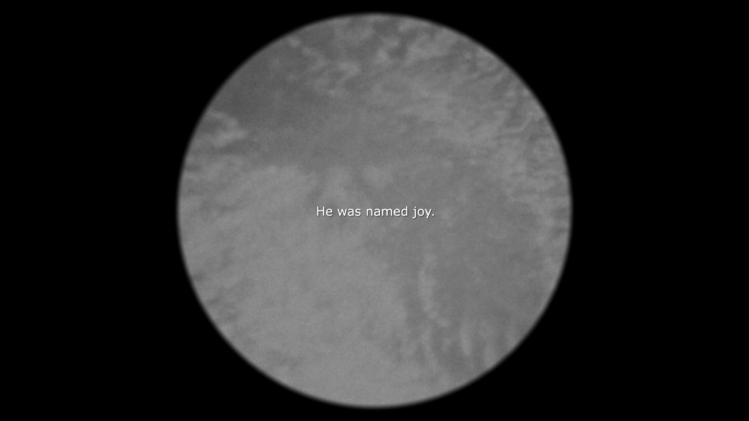
Udval Altangerel, Orbita, video still, 2020. Courtesy of the artist.
A Lingering Shadow: Online Screening
—
August 30 – September 6, 2021
Curated by Henry Heng Lu, Helga Pakasaar, and Justin Ramsey
—
Please note: The films begin streaming on this page on August 30 at 9 AM PDT.
—
Centre A and The Polygon Gallery present A Lingering Shadow, a program of short films that consider how memory becomes encoded in movement. The featured contemporary artists locate archives of history, collective memory, and narrative within the body in motion. Performances both choreographed and incidental react to moments of upheaval; change and turmoil manifest in individual, idiosyncratic gestures. In these works, the site of action cannot be traced to any one particular place; it is, at once, the space where the action occurs, the events that have unfolded there, and the bodies that inhabit it now.
—
Program
Anchi Lin – Perhaps she comes from/to____Alang, 2020, 11:43
Perhaps she comes from/to____Alang is a fusion of three narratives: oral stories from the tribe of Temahahoi where only women live; a story heard from Elders in qalang Cinsbu (Atayal Cinsbu community) in Hsinchu Taiwan about brass pots from colonisers that made many indigenous people infertile; and a virtual space inhabited by the artist as a personal cultural landscape. Currently living in Taiwan, Anchi Lin (Ciwas Tahos) is of Taiwanese H?-ló and Indigenous Atayal heritage. In this work she re-examines her identity, gender, and displacement from land lost to connect to ancestral land and to have a qalang landmark, a ‘sense of place’.
Alvin Luong – The Young Comrade, 2019, 19:50
The Young Comrade is a pseudo-documentary that deliriously interprets a play written by Bertolt Brecht in 1930 as a historical account of the 20th-century revolution in China. The video searches for Brecht’s fictional characters in contemporary China. The artist performs four altered acts of the play with personal reflections about returning to an ethnic homeland that question how undetected foreigners alter the internal affairs of another country for political action. Alvin Luong’s artworks are inspired by stories of human migration, land, and dialogues from the diasporic working-class communities in Toronto where he lives.
Jon Sasaki – A Rest, 2016, 10:20
In Jon Sasaki’s A Rest, images of depression-era dance marathon contestants are in dialogue with a choreographed dance performance. Both feats of endurance, without a partner to lean on, the solo dancer strains with fatigue and finally collapses. The film relates to this Toronto artists’ concern with staging inefficiencies and absurd or impossible tasks through performance, video, objects and installation. Performed by James Phillips, originally commissioned as part of Singular Bodies programme, Toronto Dance Theatre, April 2016.
Udval Altangerel – Orbita, 2020, 4:25
Udval Altangerel orbits her home through a camera obscura making reference to the first Mongolian cosmonaut and Mongolia’s history as a satellite state. Living between Ulaanbaatar.and Los Angeles, her work investigates the themes of personal and national histories, language, and (home)land.
Cindy Mochizuki – Sue Sada Was Here, 2018, 9:05
Vancouver artist Cindy Mochizuki explores the manifestation of story and its relationship to site-specificity, invisible histories, archives, and memory work. Sue Sada Was Here is an experimental dance film that turns written texts (statements, essays, manuscripts and poetry) by Muriel Kitagawa (1912–1974) into scores of physical movement, which are then enacted in the historic Roedde House by ten performers who embody Sue Sada, one of Kitagawa’s pen names. Kitagawa, a Nisei (second-generation Japanese Canadian) writer, wrote and published in an era similar to the Roedde family’s publishing activities, her manuscripts addressing the pre- and post-war periods in Vancouver, particularly the injustices of the Canadian government’s policies towards Japanese and Japanese Canadians.
The Propeller Group – The Guerrillas of Cu Chi, 2012, 20:04
The Guerrillas of Cu Chi features documentary footage of tourists firing bullets with guns used in the Vietnam War at the Cu Chi Shooting Range outside Ho Chi Minh City, combined with a propaganda film made in 1963 entitled “Cu Chi Guerrillas”. The camera placed behind bullet-proof glass glides back and forth scanning the shooting booths.
The Propeller Group, founded in 2006, works in a multitude of forms: a brand, an art collective, a media company, and more. Their multimedia works use the languages of advertising and propaganda to upend our understanding of power, politics and public perception.
Jin-me Yoon – Dreaming, Birds Know No Borders, 2021, 7:22
Jin-me Yoon is a Korean-born Vancouver artist whose lens-based work since the early 1990s, has focused on unpacking cultural assumptions while investigating site-related local and global histories. In this film, degraded 1990s VHS footage about an ornithologist left behind in North Korea with the soundtrack played backwards is woven into a video shot on the Maplewood Mudflats in North Vancouver that features a Korean man whose slow movements evoke the traditional Korean Crane dance. In connecting two sites – mudflats on the unceded lands and waters of the Tsleil-Waututh Nation and an estuary at the 38th parallel that divides the Korean Peninsula, the Demilitarized Zone – the film suggests that boundaries are temporary, provisional and permeable.
Duration: 85 minutes
![]()
Centre A is situated on the unceded territories of the Musqueam, Squamish, and Tsleil-Waututh peoples. We honour, respect, and give thanks to our hosts.









